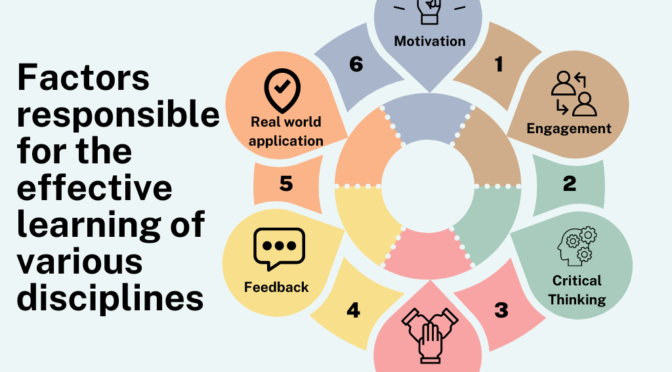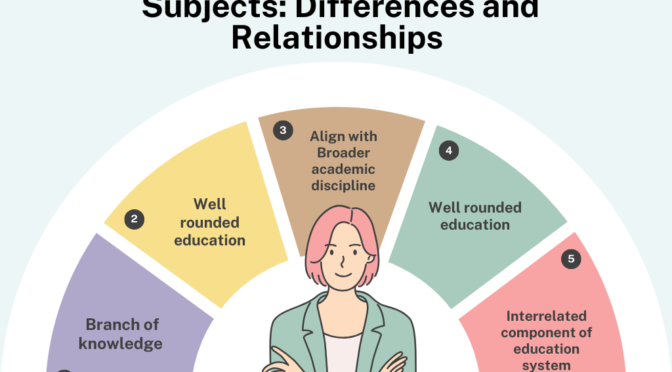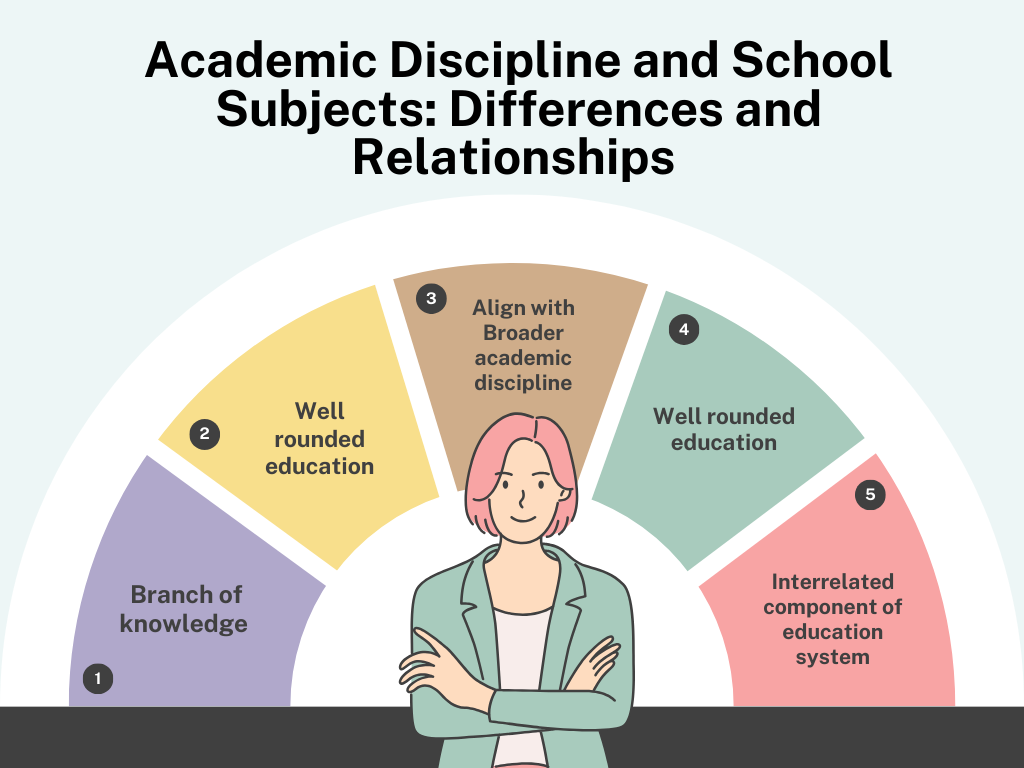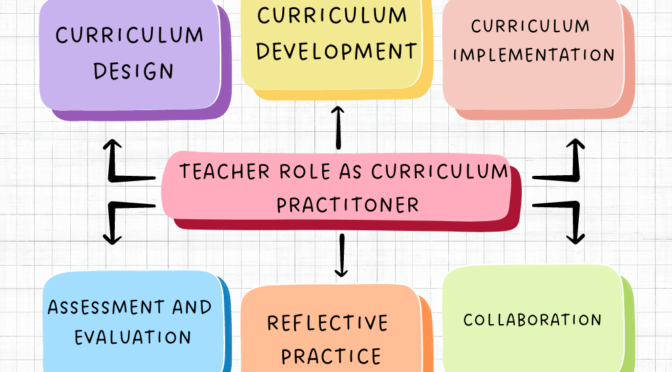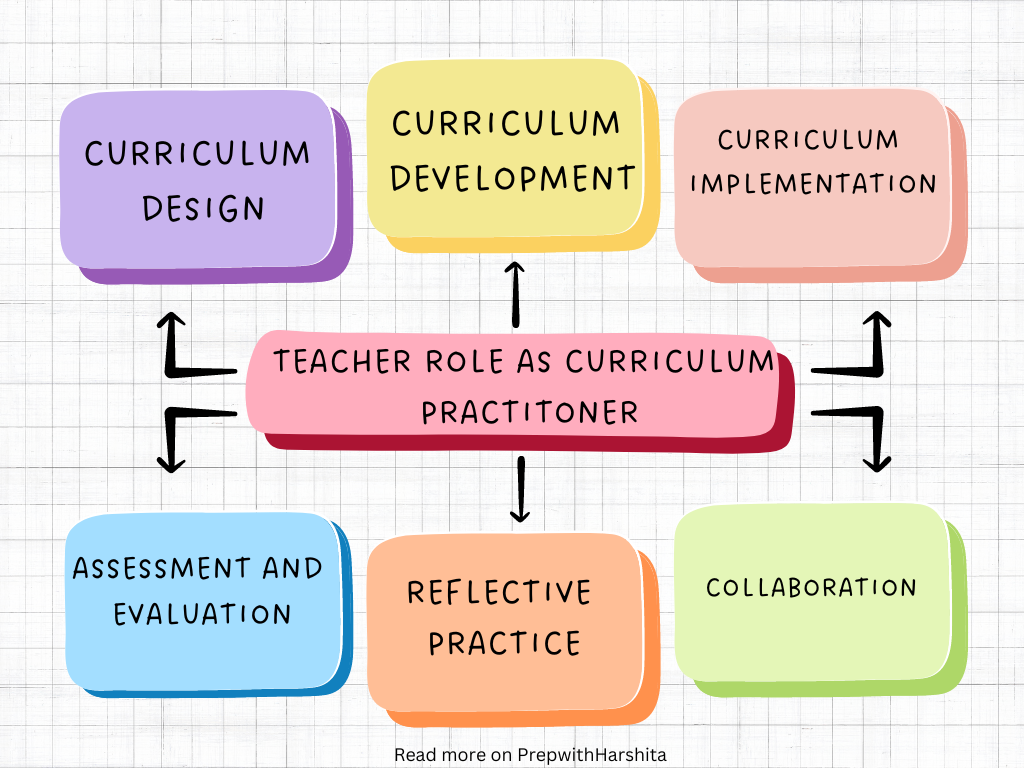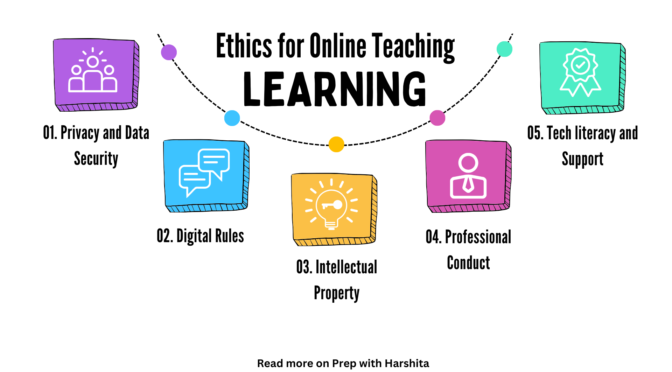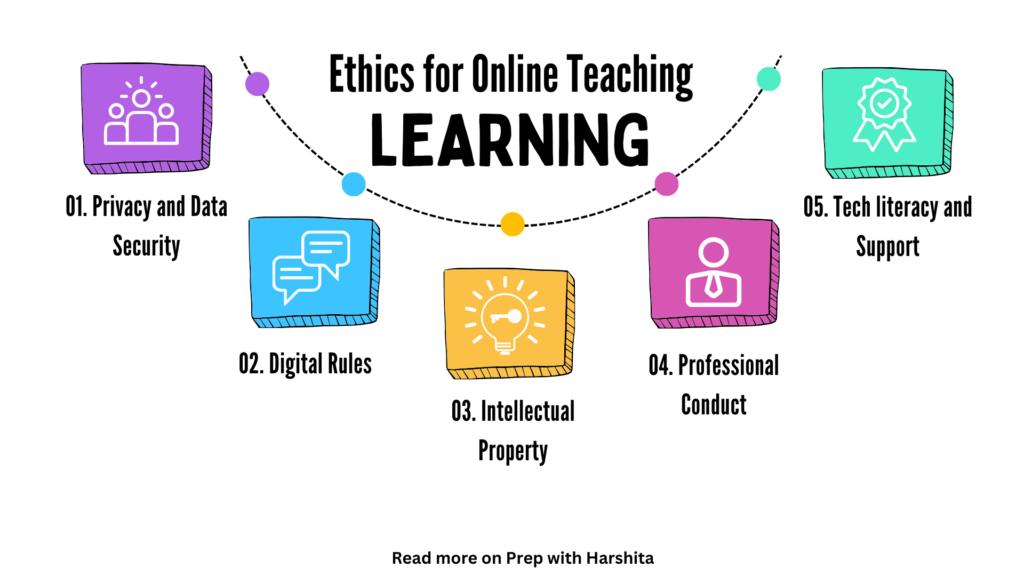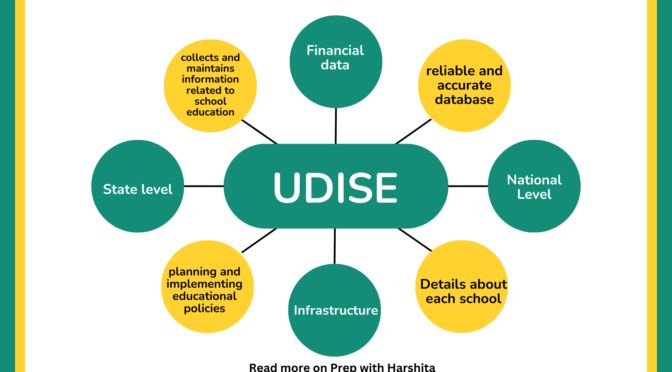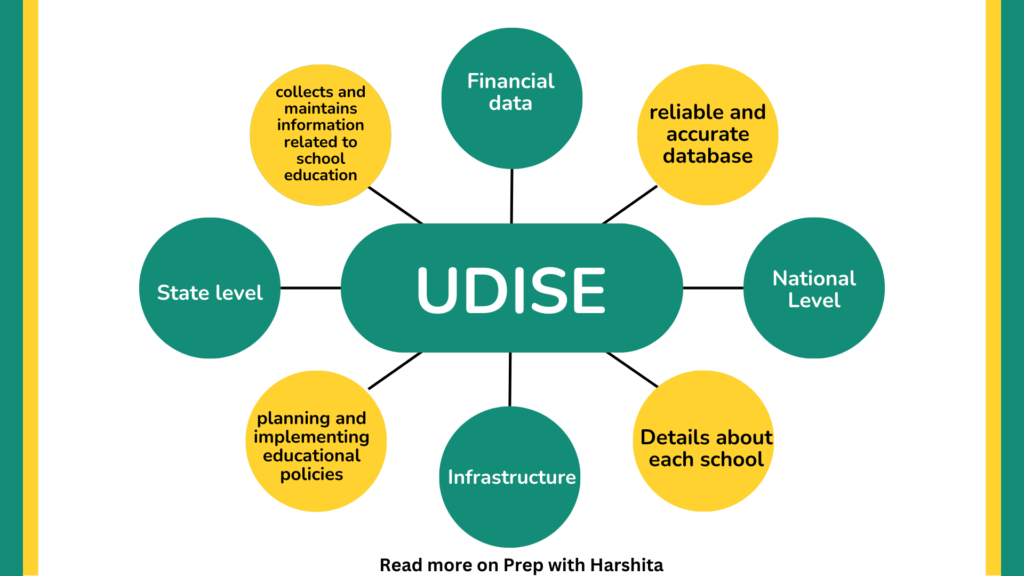Effective learning in various disciplines can be influenced by a variety of factors. Different fields have different requirements and methods but few common factors contribute to learning across various disciplines. Let’s study about them in detail.
Motivation:
- Intrinsic motivation (personal interest) and extrinsic motivation (external rewards) play important roles in effective learning.
- Setting clear goals and understanding the relevance of the subject to one’s personal or career objectives can enhance motivation.
Engagement:
- Actively participating in class discussions, group activities, and hands-on projects promotes engagement.
- Engaging with the material outside of formal learning environments, such as through self-study or online resources, can also enhance understanding. It also makes a person more interested in studying.
Critical Thinking:
- Developing critical thinking skills involves analyzing information, evaluating evidence, and making informed decisions.
- Encouraging a questioning mindset helps in understanding the topic in-depth and the application of the studied topic.
Collaboration:
- Collaborative learning, including group projects and discussions, promotes the exchange of ideas and perspectives.
- Peer-to-peer teaching and learning from others can enhance the overall learning experience.
Feedback:
Regular and constructive feedback from teachers, peers, or self-assessment helps identify areas for improvement and reinforces positive learning behaviors.
Real-world Application and Emotional Intelligence
Connecting theoretical concepts to real-world applications helps learners see the practical relevance of what they are studying.
Developing emotional intelligence can improve self-awareness, self-regulation, and interpersonal skills, creating a positive learning environment.
Also Read: Meaning of Concept
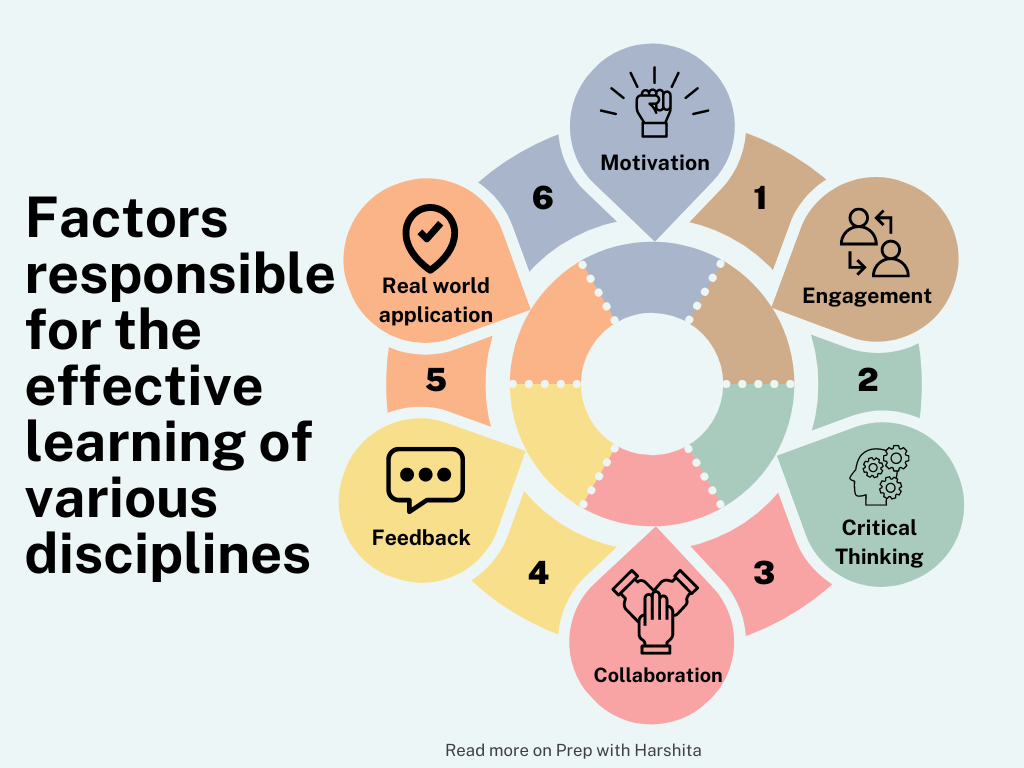
Also Visit: Prep with Harshita

